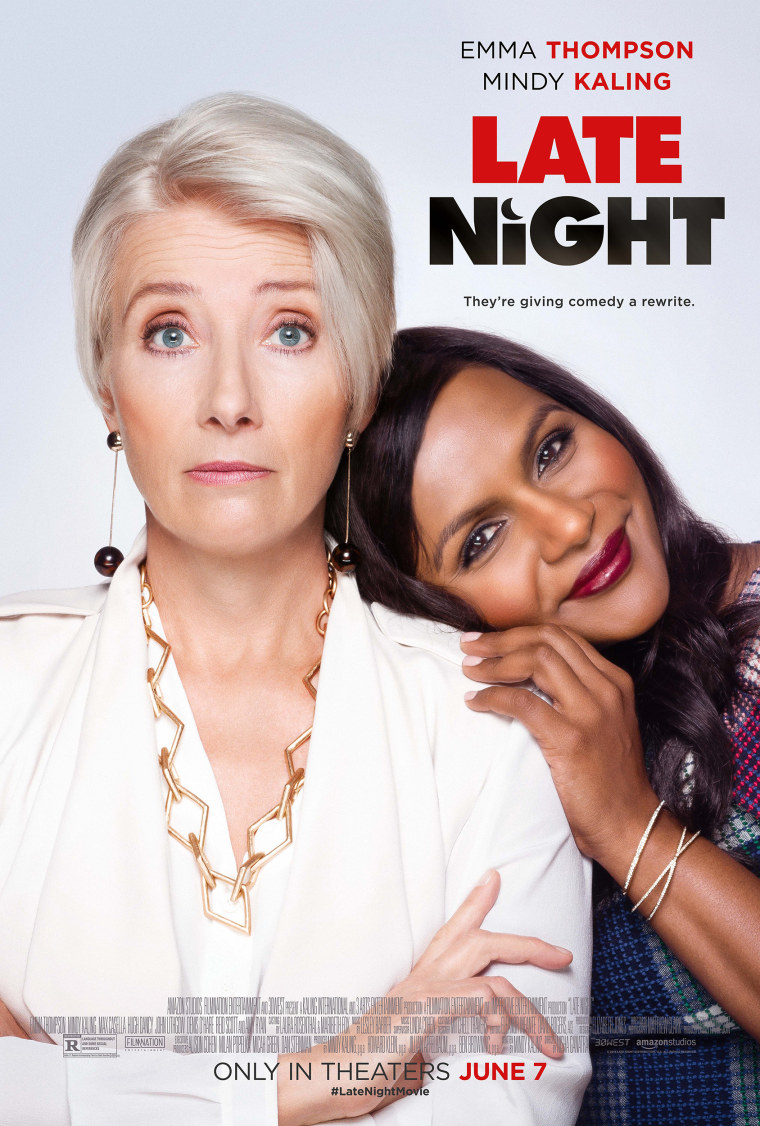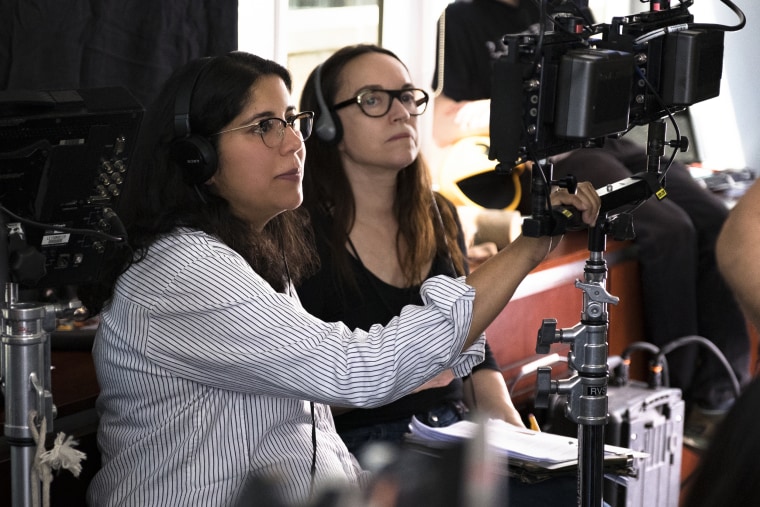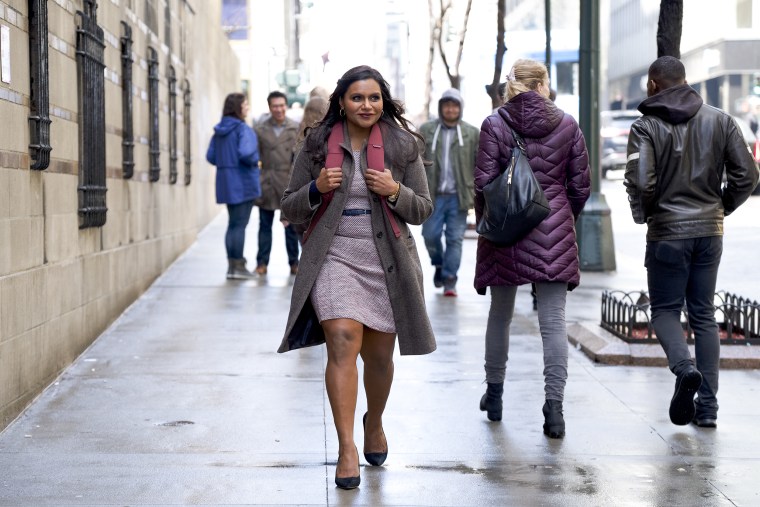Nisha Ganatra, the director of the new film "Late Night," knows exactly what it's like to be the only person of color in a writers room.
A veteran of the independent film world, Ganatra has worked in film and television for more than 20 years. Her first film, “Chutney Popcorn,” was released on the festival circuit in 1999 to great acclaim and she's since directed episodes of “Fresh Off The Boat,” “Transparent” and “Dear White People,” among other shows.
“It is definitely a strange feeling, being the only person of color in the room,” Ganatra said.
Given her experience, she was instantly intrigued when the news came out that actress Mindy Kaling was working on a script about a female host of a late night talk show.
"Late Night," which opens nationwide June 14, centers on Molly Patel, an Indian American aspiring comedy writer (Kaling). She is determined to work her way into the boys club that is the writers room of a legendary talk show host Katherine Newbury, played by Emma Thompson.
The director identified with Kaling's character when she was mocked for being a “diversity hire” and falsely told that she is more likely to be hired to a prominent position.
“I never had anyone overtly say that to me, but I have definitely left feeling a lot of people felt that way,” Ganatra said.

It becomes clear early in the film that things are not going well behind the scenes at Newbury's long-running talk show. The jokes are stale and the all-male staff rely on the same bits and routines that they'd used for years.
It is not until the newcomer Molly — a former chemical plant worker from suburban Pennsylvania — begins to push both Katherine and the rest of the staff to shake things up that things begin to change for the better.
Ganatra noted that Molly’s character arc reflects her longtime vision for diversity in Hollywood. “Very, very recently, people are more aware of the need for inclusion and hiring women and not just the sort of tokenized casting we’ve seen,” she said.
As a director and screenwriter, Ganatra has long had a reputation for going beyond a narrow vision of womanhood or identity, particularly when it comes to Indian American identity.
She starred in “Chutney Popcorn" as a 20-something lesbian in New York City struggling to maintain her relationship with her family while also being true to herself. The film, which she also directed, remains beloved by many South Asian Americans for its depiction of identity and family.
“It’s so funny, but I didn’t think of it as bold at the time, it was basically my own story,” Ganatra said. “But looking back at it, it was bold.”
Working with Kaling on “Late Night,” Ganatra had another chance to explore Indian American identity. Molly, unlike her colleagues who live in trendy New York neighborhoods in Brooklyn or Manhattan, lives with her aunt, uncle and preteen cousin in a residential neighborhood in Queens.
“When we met and talked about the ‘Late Night’ characters, I had a similar experience. So we didn’t have to explain the character’s journey because we were both Indian American,” she said. “Whereas with another director you might have had to have a ‘let me explain my character’s journey’ conversation.”

But there was one thing that Ganatra did have to learn as she prepared to direct the film: the ins and outs of late night comedy.
“I don’t really have much of a connection to late night, other than finding it funny,” she said. But ultimately, Molly’s career journey and the obstacles she faces go beyond the world of entertainment, Ganatra said, adding that film reflects her vision for what she’d like equality in Hollywood to look like.
“Molly keeps being told that diversity programs only benefit Molly,” Ganatra said. “But what we showed is that they benefit everyone.”
Follow NBC Asian America on Facebook, Twitter, Instagram and Tumblr.

